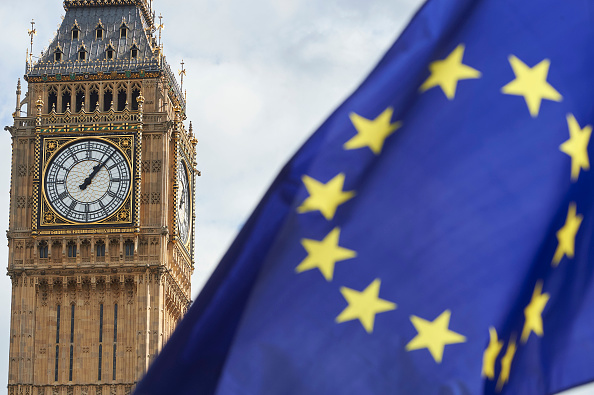No-deal Brexit could cause ‘full-blown’ recession in 2020

A no-deal Brexit could plunge Britain into a year-long recession and shrink the economy by two per cent next year, the UK’s public finances watchdog has warned.
Britain may already be on the verge of a “full-blown” recession but crashing out of the European Union without a deal would damage growth further, the Office for Budget Responsibility (OBR) said today in a health-check on the economy.
Read more: Construction market patience ‘wearing thin’ with Brexit uncertainty
The OBR said it was important to consider the economic impact of no deal as both candidates to become the next prime minister, Boris Johnson and Jeremy Hunt, are contemplating crashing out of the EU on 31 October.
It said in its no-deal scenario, which was “less severe than some”, investment would fall as uncertainty rose and higher trade barriers with the EU would damage exports.
The government would have to borrow £30bn a year more than previously forecast from 2020 to make up for a slump in tax receipts caused by falling output.
By the end of 2020 the economy would be four per cent smaller than original OBR predictions and unemployment would rise to five per cent. A Bank of England interest rate cut would be necessary to stimulate the economy.
The Bank last year warned a no-deal Brexit could make the economy could shrink by eight per cent over the long term However, forecasters such as the Bank have been accused of scaremongering.
Read more: Treasury committee demands new Brexit analysis from Mark Carney
Ruth Lea, economic adviser at Arbuthnot Banking Group, told City A.M.: “As with all the warnings of economic disaster before the referendum, so will these warnings turn out to be seriously inaccurate.”
“Brexit would be better with a trade agreement, but even without one the opportunities look great.”
The OBR insisted its model was not a worst-case scenario and was not necessarily the most likely outcome, however.
In the financial markets, sterling would “immediately” fall 10 per cent in value and be about five per cent lower by 2024, the OBR said. Holidays for Britons would be more expensive and pricier imports could push up inflation.
Share prices would fall five per cent soon after a no-deal exit, and would end almost seven per cent lower by 2023 than previously forecast.
“This is yet another reminder of why the UK must avoid a disorderly exit from the EU,” said Jasmine Whitbread, chief executive of the business group London First.
“A no-deal exit would hit the livelihoods of those who can least afford it, as well as inflicting huge economic damage.”
Read more: Pound hits new two-year low as no-deal Brexit risks jumps
The OBR report also warned that the economy “flatlined” in the second quarter, raising the risk of a recession regardless of the Brexit outcome. It said much of the slowdown was “pay-back” after Brexit stockpiling in the first quarter.
Chancellor Philip Hammond told Reuters today: “I greatly fear the impact on our economy and our public finances of the kind of no-deal Brexit that is realistically being discussed now.”